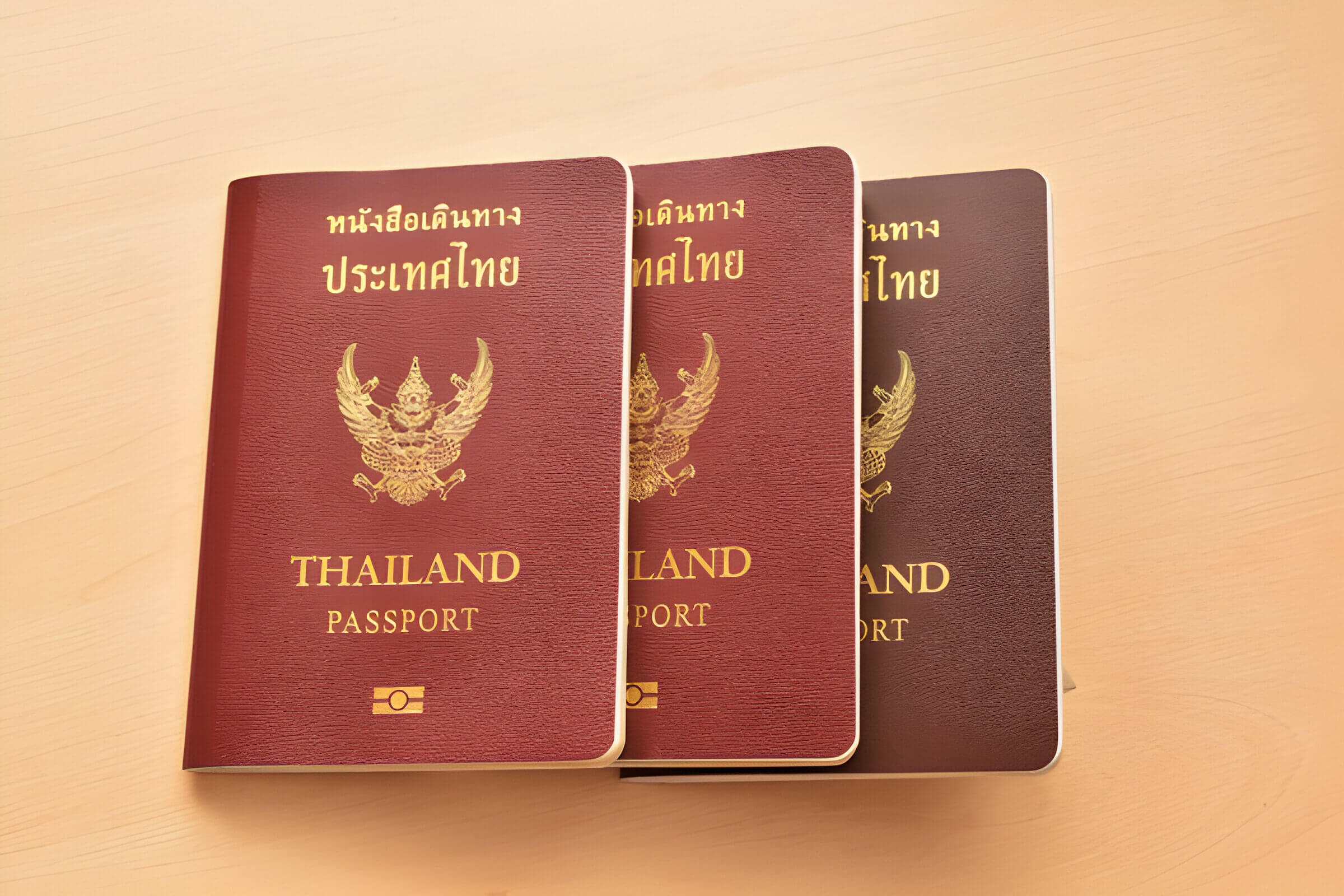A Comprehensive Guide to Thailand’s Retirement Visa: Everything You Need to Know

Thailand has long been a popular destination for retirees looking for a place to settle down and enjoy their golden years. Known for its stunning beaches, rich cultural heritage, delicious cuisine, and affordable cost of living, it’s no wonder that Thailand is a dream destination for many expats, particularly retirees. One of the most sought-after visa options for those planning to spend their retirement years in Thailand is the Retirement Visa (officially known as the O-A Long Stay Visa).
If you’re considering retiring in Thailand, this comprehensive guide will walk you through everything you need to know about the Thailand Retirement Visa, including the requirements, benefits, application process, and more.
What is the Thailand Retirement Visa?
The Thailand Retirement Visa is designed specifically for foreign nationals aged 50 or older who wish to retire in Thailand for an extended period. The visa allows retirees to live in the country for up to one year, with the possibility of renewal. It’s important to note that while the visa itself is long-term, it is not a path to citizenship. However, it provides retirees with a stable and legal way to reside in Thailand for an extended period while enjoying the many benefits the country has to offer.
Eligibility Criteria for Thailand Retirement Visa
To apply for a Thailand Retirement Visa, you need to meet specific eligibility requirements. While these requirements may change from time to time, the basic criteria generally include the following:
-
Age Requirement:
-
You must be at least 50 years old at the time of application. The retirement visa is intended for seniors who wish to retire comfortably in Thailand.
-
-
Financial Requirements: The financial criteria for a retirement visa are crucial to ensure that you can support yourself while living in Thailand. You must meet one of the following financial conditions:
-
Bank Deposit Option: You need to have at least 800,000 Thai Baht (approximately $23,000 USD) in a Thai bank account. This money must be in your account for at least two months before the visa application.
-
Income Option: You must show a monthly income of at least 65,000 Thai Baht (approximately $1,800 USD). This income could come from a pension, social security, or other sources.
-
Combination Option: If you don’t have the full 800,000 Baht in savings, you can combine income and savings. For example, a combination of 400,000 Baht in savings and 32,000 Baht in monthly income can also fulfill the financial requirement.
-
-
Health Insurance Requirement:
-
In recent years, Thailand has begun requiring proof of health insurance for retirement visa applicants, especially for those over 50 years old. The health insurance must cover medical expenses in Thailand and meet specific coverage amounts (usually around 40,000 Baht for outpatient care and 400,000 Baht for inpatient care).
-
-
No Criminal Record:
-
You will need to submit a police clearance certificate from your home country to prove you do not have any serious criminal record. This helps ensure that retirees in Thailand are law-abiding citizens.
-
The Application Process for Thailand’s Retirement Visa
Applying for a Thailand Retirement Visa involves several steps. While the process may vary slightly depending on the Thai embassy or consulate in your home country, here is a general overview of the steps you’ll need to follow:
-
Prepare Required Documents: Before submitting your application, ensure you have all the necessary documents, including:
-
A valid passport with at least 12 months validity.
-
Proof of financial stability (bank statements, income certificates, or a combination of both).
-
Police clearance certificate from your home country.
-
Health insurance documentation (if required).
-
Passport-sized photographs (typically 2-3).
-
Completed visa application form.
-
-
Submit Your Application: You can apply for the Retirement Visa at a Thai embassy or consulate in your home country or your current country of residence. Some consulates may offer the option to apply for a visa extension once you’re already in Thailand.
-
Visa Approval and Entry: Once your visa is approved, you’ll receive a non-immigrant visa (O-A), allowing you to stay in Thailand for one year. Upon arrival in Thailand, you will have to go through the usual immigration process, which may include showing your visa approval and additional paperwork.
-
Extend Your Visa: After the initial year, you can renew your Retirement Visa annually. However, you will need to demonstrate that you continue to meet the financial and health insurance requirements at the time of renewal. Renewal is usually done at the local immigration office in Thailand.
-
Report Your Residence: Every 90 days, retirees with a Retirement Visa must report their current address to the immigration office, even if they haven’t moved. This is a standard requirement for all long-term visa holders in Thailand. It’s important to follow this rule to avoid fines or complications with your visa.
Benefits of the Thailand Retirement Visa
Thailand’s Retirement Visa offers a range of benefits for retirees, making it a popular choice for expats seeking a relaxed lifestyle in one of Southeast Asia’s most welcoming countries. Here are some of the main benefits:
-
Long-Term Stay: The Thailand Retirement Visa allows you to stay in the country for up to one year, with the option to renew annually as long as you meet the requirements. This provides retirees with a stable and long-term living situation in Thailand.
-
No Need to Leave the Country: Unlike many other countries that require visa holders to leave and re-enter after a certain period (visa runs), the Thailand Retirement Visa allows retirees to stay in the country for up to a year without having to leave. This makes it much more convenient than many other visa options.
-
Affordable Cost of Living: Thailand is known for its affordable cost of living, making it an ideal retirement destination for people looking to stretch their pension or retirement savings. From cheap healthcare and delicious food to affordable housing options, Thailand offers great value for money.
-
Access to Health Care: Thailand has an excellent healthcare system, with world-class hospitals and medical professionals. Expats and retirees can access both public and private healthcare facilities, often at much lower prices than in Western countries. As a retiree, you’ll have access to high-quality healthcare at a fraction of the cost, provided you have health insurance coverage.
-
Stunning Environment: Thailand offers a wide variety of environments to suit any retiree’s lifestyle. Whether you prefer the bustling city life in Bangkok, the beaches of Phuket, or the serene landscapes of Chiang Mai, you’re sure to find a place that fits your preferences.
-
Expat-Friendly Environment: Thailand has a large and vibrant expat community, making it easier for retirees to integrate into local life. There are many social clubs, expatriate organizations, and networking opportunities to help you build a new social circle and meet like-minded people.
Things to Keep in Mind
While the Thailand Retirement Visa offers numerous benefits, it’s essential to keep a few things in mind:
-
Visa Requirements Are Subject to Change: Thailand occasionally updates visa policies, so it’s crucial to stay informed about any changes that might affect your visa status. Always check with the Thai embassy or immigration office for the latest information.
-
Financial Stability: Ensure that you can meet the financial requirements for your visa, especially if you plan to rely on income or savings from outside Thailand. If you don’t maintain the required funds, your visa may be at risk during renewal.
-
Consider Alternatives: If the Retirement Visa doesn’t suit your needs, there are other visa options in Thailand, including the Non-Immigrant O Visa for those with family connections or the Elite Visa for those willing to invest in a premium residency program.
Conclusion
Thailand’s Retirement Visa is a fantastic option for foreign nationals who wish to retire in this beautiful and affordable country. The process may seem detailed, but with the right preparation, it’s relatively straightforward to obtain and renew. With its stunning landscapes, rich culture, and low cost of living, Thailand continues to be a top destination for retirees looking to enjoy a relaxed, comfortable lifestyle.
By understanding the requirements and benefits of the Thailand Retirement Visa, you can start planning your retirement in Thailand and enjoy the peace and tranquility of life in one of Southeast Asia’s most welcoming countries.




